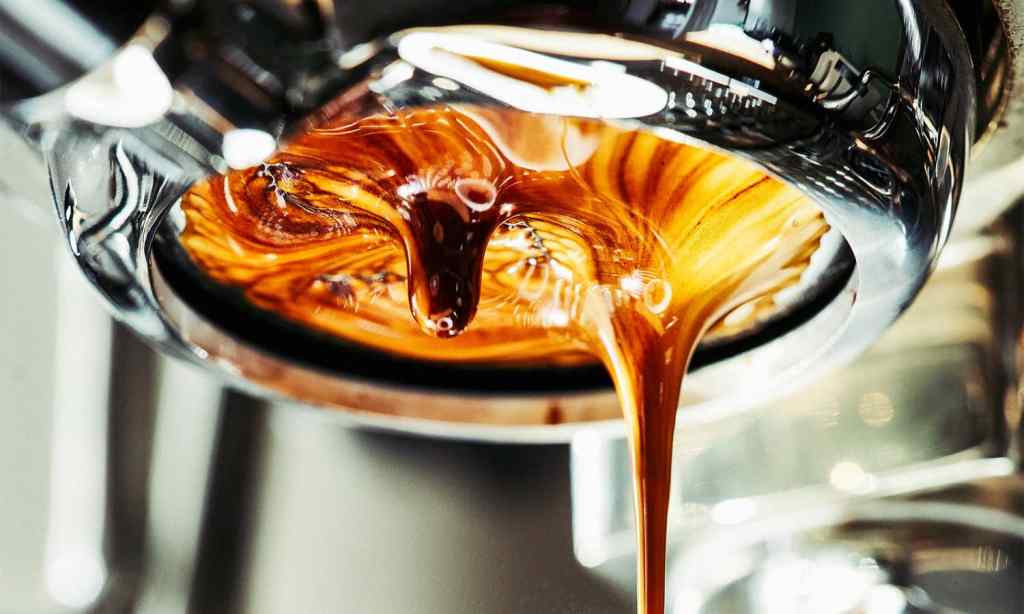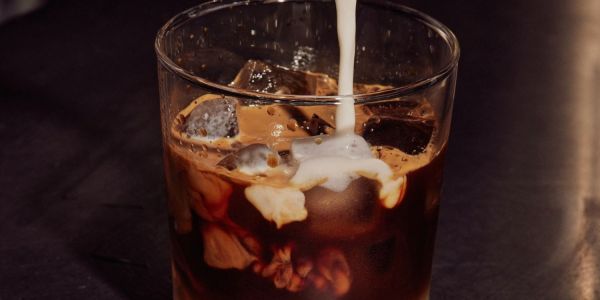When you tell people you don’t drink coffee, they look at you like you’ve just said you enjoy snacking on deep-fried puppies. Despite the looks and the occasional social exclusion, quitting coffee was one of the best things I’ve ever done and I don’t see myself ever going back.
Before you start thinking I’m some kind of lightweight and that you, a hardened java drinker, could never give up the bean juice, let me set the scene. I was a fully qualified barista. I worked in coffee shops and places that make and sell coffee for years. I could whip up a banging cappuccino in 1 minute and 14 seconds. Coffee used to be my life.
I know exactly how great it is, which made it all the harder to quit. From the age of around 16 to 26, my caffeine intake rose and fell like a great tsunami. There’s no way I would have made it through my student years without imbibing vast quantities of the life-giving liquid and I owe a lot of productivity and work to coffee.
I was the guy who has ‘a thing’ and is then gifted things related to that interest for every Christmas and birthday. I had a whole laboratory of coffee-making contraptions at home and would source rare beans from coffee grinders to sample their flavours. Hell, I even had a coffee subscription at one point.
However, while my love affair with the drink grew, so too did the downsides and the side effects. I noticed that I was struggling to sleep and that my sleep quality was poor. I would have to listen to calming music to get myself to bed every night, lying awake for long periods of time without feeling tired.
At the height of my intake, during my undergrad years, I would be exhausted in the mornings, dragging my carcass down the stairs to free-pour a heavy stream of instant coffee into a mug before I could even consider setting about doing my tasks for the day.
I’d have a proper coffee shortly after, then another at 11 and likely two more through the day. Double shots, always, occasionally topping these with espressos in-between. During the weeks before my dissertation was due, I was averaging 10 coffees a day. I heavily related to Fry during this episode of Futurama.
It was clear that I had a problem and that this is well above your average caffeine intake for the day but I felt like I needed it. I guess I had a high tolerance. I once sampled 12 espressos in five minutes while tuning a coffee machine to pull the optimum shot and nearly sent myself into the future.
I dialed it back after uni, bringing my intake down to a manageable two or three coffees a day. I tried to limit it to one and it worked for a while but, like any drug (and caffeine is absolutely a drug), my body quickly became accustomed to it and I needed more to get that buzz. One coffee turned into two which turned into three and then I was back at square one, unable to function unless I had my fix.
What I hated most about it was feeling like I had no choice in the matter. Going a day without coffee seemed like the dumbest decision ever, as there’s never really a good time to be functioning at less than your best. I hated waking up in the mornings feeling groggy as hell and knowing that I wouldn’t feel human again until I had a coffee.
After the coffee, I’d feel great, and, for a few hours, I’d be able to work productively and concentrate on the task at hand. After lunch, as the caffeine wore off, I’d find myself incredibly tired and I struggled through most afternoons without a pick-me-up. That vicious cycle of being tired and wired and not seeing a way out was the worst part of it.
I eventually quit coffee at the start of 2019. I switched to tea, which, being British, was a natural choice. I would have maybe two or three black teas through the day and, while it wasn’t coffee, it certainly helped lower the cravings. I had prepared myself for the shift, knowing that caffeine provides dopamine and adrenaline and constricts blood vessels. Without it, your suppressed adenosine hormones rush in to fill the caffeine void and your blood vessels widen, bringing on headaches and crushing tiredness.
I felt all of this. It was like I had a low-grade flu. I felt groggy, completely out of it, and half-convinced myself I was getting ill. The first week was the worst but I had read that after two weeks without coffee, your body has basically reset its chemical balance.
Pressing ahead with it, I found myself far more easily able to wake up in the mornings and sleep in the evenings. The racing heart rate was gone, as was the tunnel vision that occasionally came after one too many cups. My anxiety was far lower and I was off that rollercoaster of up and down that I hated.
After a few months, I hardly missed it. I was sleeping so much better and felt like I had more energy. Not the same bursts of energy you get with coffee, but a more sustained alertness throughout the day that didn’t come and go with the visit to a café.
A year in, I decided to go back. My thinking was that I was now freelancing and that I needed the mental and physical boost to stay on top of my work. As I was putting my body through the ringer for myself and not a boss, it felt justifiable.
Going back was worse. I got hooked on the same cycle and the side effects felt much stronger. After just a few months, I quit again and it’s been nearly two years since I’ve tasted coffee save for the odd espresso martini here and there.
I now drink a pot of green tea a day made with three tea bags. I’ll usually sit on this from about 8am through to 3pm, getting a sustained but minuscule drip of caffeine from the tea. There are no side effects that I notice and there’s nothing like the rush from coffee to set me off on that spiral.
If you’re thinking of giving up the bean juice for good, let me tell you, there is life on the other side. Coffee is not the be all and end all and it’s entirely possible to function well, even better, without it. While the first few weeks are the hardest, it gets easier and the rewards for finally kicking the habit are entirely worth it.
I’d recommend to anyone concerned about the effects of caffeine to give it a go for a month and see what happens. You can always come back to it, but you might just realise how much better and easier life is beyond the beans.
Read more stories from The Latch and subscribe to our email newsletter.







